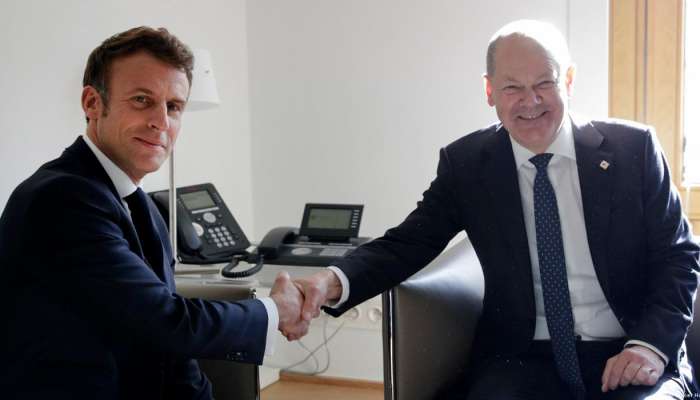
German Chancellor Olaf Scholz was set to meet with French President Emmanuel Macron in Paris on Wednesday amid recent tensions between the two nations.
The leaders of two of Europe's biggest powers have disagreed on several issues lately, mostly pertaining to European policy and the energy crisis caused by Russia's invasion of Ukraine.
Reflective of the strained relationship, Macron had recently remarked that it is "neither good for Germany nor for Europe when Germany isolates itself."
Initially, the Franco-German Council of Ministers was scheduled for the day, but the meeting was called off last week without much notice and reschedule for January.
The Elysee Palace stated that the cancellation was due to scheduling conflicts and said "the delay does in no way give an indication of the current state of the Franco-German relationship." But this failed to placate experts who see a deepening rift between the two countries.
European superpowers at odds
Historically,France and Germany have held opposite positions on certain issues, but recently, as they have become more independent of one another, it has strained the relationship between the two of Europe's biggest economies.
Berlin recently voted through a €200 billion ($197 billion) emergency energy package at home, without informing France, which is possibly going to disrupt the gas and electricity market.
Meanwhile, Macron's recent deal with Spain and Portugal to build a new gas pipeline between Barcelona and Marseille has left Berlin in the lurch, as its hopes of benefiting from Iberian gas through another pipeline between Spain with France via the Pyrenees is now likely dashed.
Furthermore, Germany's new deal with 14 NATO nations and Finland to create a joint air defense program on the continent leaves out France.
January will mark the 60th anniversary of the Elysee Treaty that saw relations between France and Germany grow after years of conflict.